I have a 12-year-old son. He’s on the cusp of being old enough to begin engaging in social media and setting up accounts on services like Facebook (legally kids need to be 13 prior to creating an account of Facebook). While I’ve read copious articles and arguments from Christian parents who plan to prohibit their kids from using Facebook, I don’t see too many Christian parents advocating that their kids should use Facebook and other social networks.
Let me me be the voice in the void.
I won’t ban my kids from Facebook. In fact, I want my kids to be involved in social media.
Wipe the flabbergasted look off your face. There are some very good reasons. I hope you’ll hear me out.
The Bottom Line
That said, I understand parents reservations about Facebook and other social media. Really, I do. There are some big potential problems.
Parents, if you don’t teach your kids how to navigate social media now, while they are under your roof, they’ll learn to do it all on their own. And to me, that is much scarier than my kids exploring Facebook under my supervision. It’s just as important to train your children in the online world as it is in the offline world. Avoiding social media altogether isn’t training them at all.
It’s my hope that you will educate yourself in the dangers and the benefits of using social media and then learn how to guide and train your teens about these dangers. We want to raise teens who are wise with their social media use.
Teens and Facebook Pitfalls
There are pitfalls for teens (and adults) when they use Facebook. If you don’t believe this, you’re fooling yourself. We as parents need to acknowledge these and be fully aware of them. If we don’t help guide our children through these pitfalls, they’ll fall in the potholes along the way.
- There’s the danger of obsession. It’s easy to spend too much time on Facebook. Recent research has shown when teens spend too much time on Facebook and begin to obsess about it, it causes anxiety and sleep disturbances.
- Facebook can negatively impact education. Students who check Facebook during study times have lower grades and it also decreases reading retention.
- Cyberbullying is a constant threat. In fact, 88% of teens say they have seen someone being mean or cruel on a social network, and 20% of teens say their peers are “mostly unkind” on social networks.
- The FBI reports that there are approximately 500,000 online predators. These are people who are looking for ripe opportunities to take advantage of common teenage vulnerabilities.
- And as with the entirety of the Internet, there’s always inappropriate content that can be accessed and shared.
Benefits of Facebook
With all of those scary pitfalls, why would I even want to consider letting my kids on Facebook. As I said before, the primary reason is because I want my kids to learn how to wisely use social media under the safety of my guidance and while I’m able to monitor what is going on. But there are certainly many ways my kids can benefit from Facebook!
- Connecting with friends and family—especially those long distance. Much like the telephone a couple generations ago, social media has become a significant way youth stay in touch with one another. Far from detracting from face-to-face relationships, research has shown that those who are frequent Facebook users actually have more close friendships and social support.
- Social networks like Facebook can be positive spaces of self-expression—sharing personal, spiritual, or political viewpoints and presenting themselves to the world.
- Studies have shown that Facebook can positively impact kids development of empathy for others.
- Facebook has allowed me to network with people working in my industry. This will continue to be a fantastic mode of networking as our kids enter the workforce.
- Facebook can also be used as a marketing tool. While this isn’t a way that my kids will currently be using Facebook, I want them to learn how to use social media wisely so they can understand how advertisers use the Internet to try and gain their attention. Knowing this may even prepare them for future careers.
7 Facebook Guidelines: Helping Your Teen with “Rules for the Road”
The big goal of allowing your child on Facebook is not just safety: it is teaching responsibility.
Facebook guidelines in your home should revolve around two main principles: virtual integrity (living your real work values in an online space) and virtual intelligence (being smart about how social networks work).
As you let your teen get on Facebook for the first time, use the opportunity to have a conversation about the “rules of the road.” Do this by allowing your teen to set the guidelines with you—don’t just create the guidelines for them. This allows them to own the guidelines for themselves.
Here are 7 points to help you steer that conversation…
- God doesn’t want us to become obsessed about any created thing. How do we find balance in the way we use Facebook so it doesn’t become an obsession? Suggest specific boundaries you might have in the home around Facebook: using it only after homework is done? using it only at a certain time of day? using it for only so long each day/week?
- God wants us to be content, not envious of others. How do we practice this on Facebook? Often, when we are constantly seeing personal details about others’ lives, it is easy to get envious of what they have or how they look. We need to keep watch of our hearts when we use Facebook, even limiting Facebook use if we see it is becoming a problem.
- God wants us to care more about lifting up others than promoting ourselves. How do we do this on Facebook? Research has shown that certain activities are more predictive of greater social involvement in the “real world”: things like viewing others’ photos, commenting on others’ status messages, or creating and RSVPing to events. These are less self serving than merely posting our own photos or playing games. Suggest to your teen: every time you get on Facebook, ask yourself, “How can I encourage someone today?”
- God wants us to be a blessing to others, not discourage others. How do we do this on Facebook? Talk to your teen about the reality of cyberbullying. Teach them the importance of never being an online bully through rude comments. Teach them the importance of talking to you if they feel bullied. Teach them the importance of standing up for others if they see online bullying going on. Remind them how easy it is to fall into the trap of insulting someone online because you don’t have to see them face-to-face when you do it.
- God wants us to not dwell on inappropriate images. How do we deal with this on Facebook? Talk about the importance of guarding our eyes from images that don’t honor God’s gift of sexuality. Teach your teen how to navigate the visual minefield. Show them how to “hide” ads (telling Facebook you think it is inappropriate or sexually explicit), how to unfollow specific friends who post inappropriate images, or even how to report images they deem obscene. Of course, this also means not posting inappropriate or immodest photos themselves.
- God wants us to have a good reputation. How do we accomplish this on Facebook? We need to pay special attention to how we act on social media because it provides people with a digital footprint of what we’ve said and done. This means we should watch our language and the content of our conversations: are they godly, uplifting, true, wholesome, and beneficial? Tell your teen that employers, coaches, and even colleges look at social media profiles as clues to a person’s integrity.
- God wants us to remember others have evil intentions. How do we remember this on Facebook? It is smart (especially as a minor) not to post your home address, name of school, name of work, current location, phone numbers, or email addresses on Facebook. Teach your teen how to use privacy settings (which only allows certain people to see the information you post) and to remember that not everyone they talk to online is who they appear to be. The old-school playground rule “Don’t Talk to Strangers” applies here.
What You, the Parent, Should Be Doing…
There needs to be accountability for where they are going and what they’re doing.
- Ban Facebook until they are 13. If you allow your child to do it before this, you’re basically allowing them to lie (or lying for them).
- Be on Facebook yourself. Don’t be the embarrassing, ever-present, socially-awkward parent always commenting on your child’s stuff, but use Facebook to monitor what your child is doing. Monitor who their friends are and the public conversations they have.
- Have access to their login and password. Don’t allow what you don’t monitor. Remember, they can use Facebook’s privacy settings to block your view of what they are doing, so having their login information is important for a complete picture.
- Model how Facebook should be used. Practice what you preach.
In the end, it is about creating an atmosphere of accountability in the home. Accountability is not spying. Spying communicates distrust and punishment. Accountability communicates love: “I want the best for you, and I want to watch your back.”
Beyond Social Media: Teaching Godly Relationships
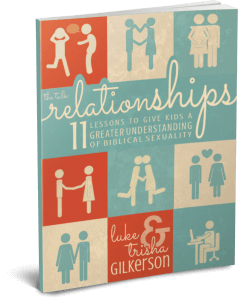
This is why my husband and I wrote Relationships: 11 Lessons to Give Kids a Greater Understanding of Biblical Sexuality. This book is for parents to read-aloud with their 11- to 14-year-olds, discussing all sorts of matters about how to steward our relational and sexual desires well.
The book is actually the 3rd in a 3-part series, so check out the rest of the books if you have younger kids.

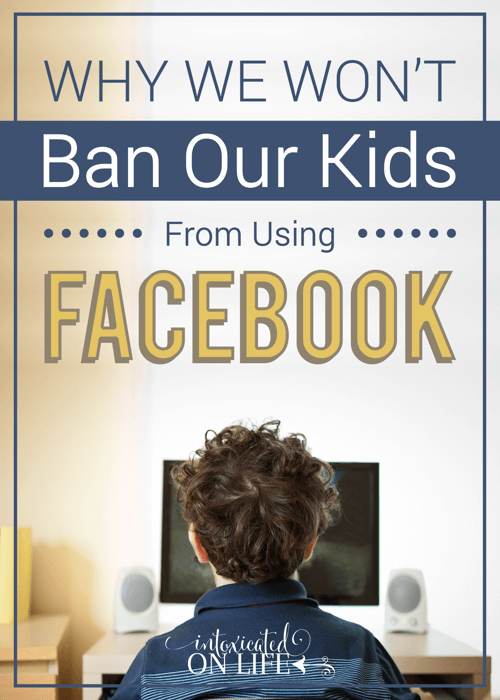
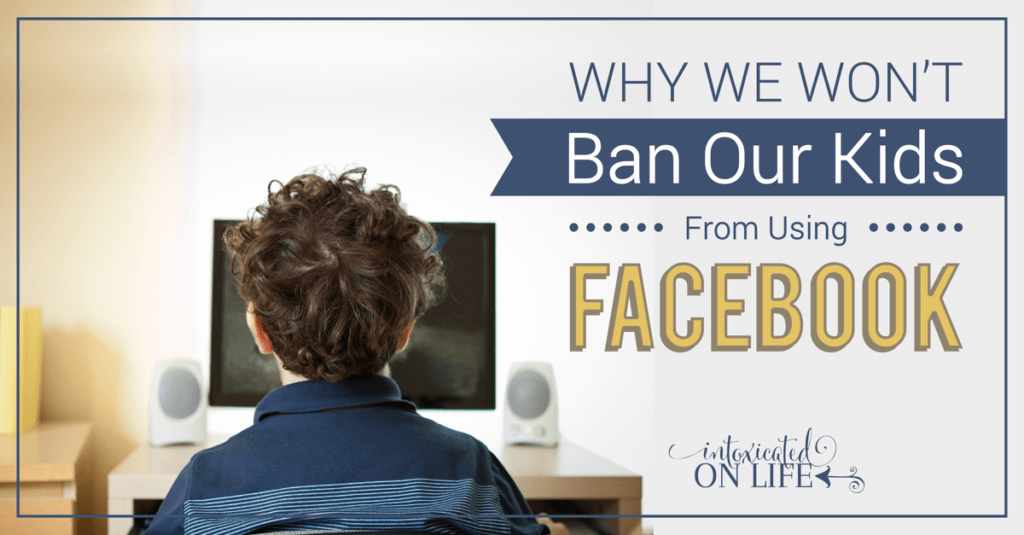
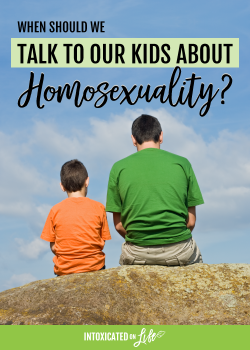
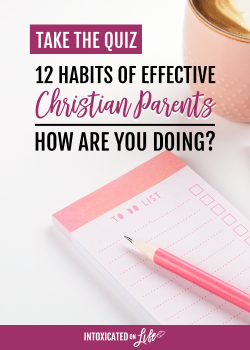
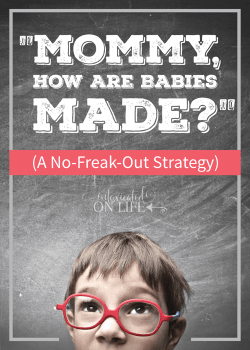






I agree totally with you! All our girls got on FB at 13. I ended up being the mom to a lot of kids their age because their parents were not. Good for you for sharing this!
Thanks for the note Susie. It’s good moms like you are out there to help look out for kids without parents who are keeping an eye on things.
Thank you for this much-needed voice! It’s like so much else in life, if we don’t teach our kids about it, the world will. I really appreciate the two guiding principles you gave and the God-centered points you shared for conversation. My kids are still too young for Facebook, but never too young for the principles. I will be tagging this for future reference as well!
Thanks for the encouragement Marielle. You’re right, these are principals we can use when it comes to lots of things, not just facebook and social media!
Apologies but I believe that this has not been thought through. Many adults and parents nowadays tend to forget values of old and give in to present values which is becoming more and more of the world. Guys, lets not kid ourselves…this world isn’t aspiring towards being pure in heart!
So, don’t give in to your children’s culture of facebooking…etc. because what’s really happening is you are being hijacked into all forms of superficial communication and forging a superficial personality. When you communicate via a device, you are being conditioned psychologically and interaction becomes somewhat superficial. It’s from the psychological standpoint where I can go on and on but just consider that even those who were responsible for creating those social platforms would never dream of allowing their children to use them. It is very enticing and generally we have become very sensual which is why it is never easy to resist. Pluck up the courage else we will end up giving in by giving all sorts of excuses only to be trapped.
Do a study and discover how many, due to the present psyche, abuse rather than use these platforms and you’ll be wise and doing your kids a favour in the long run by keeping them away from social platforms!